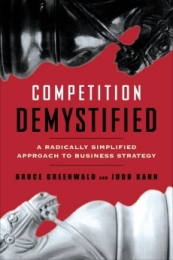
A Reader Sought Advice
http://wp.me/p1PgpH-lm
Thanks to all the advice offered by other readers, this person landed a job at a multi-billion dollar fund. I received this letter:
I am more than happy to share my experience – it obviously may not be very useful as each person has a different background/personality but I hope the general rules that I have learned the hard way will prove useful to some.
With that said, here is a summary of my key recruiting pointers:
1. Email + Call + Meet professionals in the industry – one of my coworkers speaks barely passable English, works under the often-shunned H1B1 visa, and as the appearance of sluggish slacker. First impression would tell you that he would be the last person in the labor force to land an analyst role at a top investment management firm. At least that’s what I assumed. Then one day I was discussing the gloomy job market in finance with him and he mentioned in passing that he had emailed about 100 professionals before finding someone in his Alumni network willing to talk to him. He has a master’s in financial engineering from UCLA and guess what his teammates are doing? Looking for jobs. He commented, “of course you can’t find a job if you just submit your resume, come on, who’s going to look at 500 resumes?” I took a similar approach after having failed miserably with mass-emailing resumes and catchy cover letters. It’s an approach that worked for me and my coworker and we aren’t the brightest or the most experienced so perhaps it will work even better for others who are brighter/more qualified.
2. Research the firm + the role – while it’s obvious that you should research the firm that you are interviewing for, it’s less apparent that you must research the role. Often times the role description will be a bunch of mumble jumble so I have found it helpful to learn about the position from someone in the department before the interview if possible. This is hard to do in most cases so the next best alternative is to write down what interviewers tell you and rapidly build up your knowledge during the interview. I have found that especially when interviewing with more senior people, they are much more interested in your knowledge about the role than your skills and intelligence.
3. Leverage recruiters – I tailored my linked-in profile to the investment management/hedge fund industry. My hunch is that recruiters heavily leverage LinkedIn to find candidates and big companies often use recruiters to screen candidates. Therefore, recruiters can be your best friends in getting a job if you are open to them, respect them, and seek their advice. My recruiter gave me a list of common questions that the firm was known to ask and it sure is a lot easier going into a test knowing most of the questions. Also, it’s helpful to have someone who already has a relationship with the firm and knows all the do’s and don’ts to follow-up on your behalf.
4. Be aware and mindful of interview taboos – I went into one important interview (for me at least) with a cup of coffee and found out later that it was a big taboo because it makes you look like a tool. If you are like me, this kind of stuff is not obvious so make sure to google interview don’ts before you go in.
5. Be open-minded – I went into interviews originally with the mindset that I just want to do investment research, I don’t want to build pretty power points or do grunt work. This prevented me from passing up many good opportunities. Then one day I realized that I was too damn closed-minded and decided to not jump to conclusions and try to get every interview I can. If it worked, then great, and if not, then I got free practice.
6. Be realistic – in the end, I’ve learned that unless you have certain experiences/credentials/connections, some jobs are simply not for you. For example, hedge fund managers will not talk to you if you don’t have sell-side experience. It boggles my mind why 100+ hours, adderall-charged work weeks spent making Powerpoints prettier and building simple spreadsheets translates to business acumen or investing prowess but reality says otherwise and reality must be respected. As an aside, I feel that many of the seemingly meaningless hurdles designed into the corporate ladder is because the managers had to go through the same hurdles so unless you’re a genius, why should you be granted a shortcut? The answer seems to be either play their game or do it on your own, which I think is vastly more preferable if you have the gumption.
I hope this is helpful. Keep in mind that what I have described above is what I found to be useful in landing a corporate job and I suppose does not apply to someone who wants to start his/her own fund. If I had to boil what I have learned down to one sentence, it would be: respect reality and act accordingly.
Please feel free to share the above/parts of the above with your readers in any way that you see fit. I only wish to remain anonymous.
p.s. I found this blog on Charlie Munger, check it out! http://mungerisms.blogspot.com/
 A reader forwarded me the link to an excellent web-site with an index of all the questions ever asked of Buffett in public.
A reader forwarded me the link to an excellent web-site with an index of all the questions ever asked of Buffett in public.










